Kids must enjoy school without any terms
Updated: 2016-08-31 07:54
By Colin Speakman(China Daily)
|
||||||||
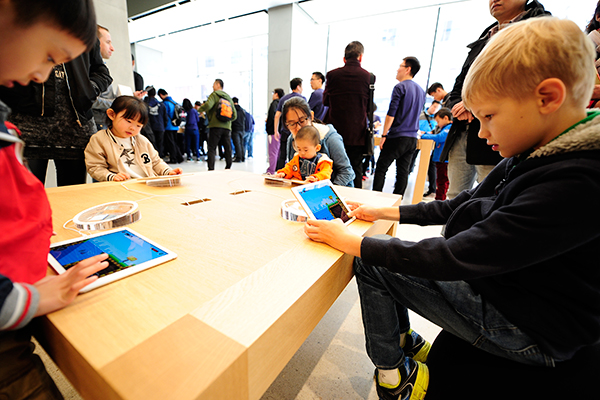 |
|
An outlet of Apple Inc in Tianjin. [Photo provided to China Daily] |
Students will be back to school or college in China as well as Western countries very soon. Children's education has become an expensive affair in developed economies and has been partly responsible for small families, often with a single child, in the West. Even in China, despite the lifting of the one-child policy, not many couples will have a second child partly because of the rising cost of education.
Actually, the cost of educating even a single child has increased over the past couple of decades. School policies traditionally encourage a sense of community. The school uniform itself is supposed to inculcate students with a sense of equality regardless of the economic background of their parents-no designer uniforms or smart suits on display.
In my country, Britain, we can still see "back to school" signs on store windows with affordable notebooks (traditional paper ones), pens, rulers and other basics. But the school bags that these items are carried in are more likely to reflect designer trends and be very expensive.
Since schools cannot really standardize possession of other useful items, parents give their children mobile phones so that they can communicate with them in need. And by giving their kids the latest smartphones such as iPhone 6, many parents create a visible wealth divide among children and prompt children of even low-income families to force their parents to buy them expensive cellphones so that they can keep up with the Joneses.
It's natural for children to be influenced by their peers and feel belittled without what the gadget makers say are indispensable items. As technology races ahead, economies are kept going in part by new waves of "aspirational" goods that may motivate people to work harder to increase their incomes and reward themselves with these goodies.
This craze will not end, but is it good for children to be showered with such expensive goods before they have completed their education and earned any money on their own? By getting such items easily will children lack the capability of making their way in society and accept setbacks after they grow up?
Does the flaunting of expensive items in school by some children lead to less fortunate children developing inferiority complex? And if high-tech gadgets become a necessary feature of education, as some claim, will they limit the chances of relatively poor children to gain education?
In the early days of computers in schools, students had access to a computer only in the school computer lab. When cheaper computers entered the market, schools struck deals with suppliers to get "affordable" computers for students. Today there is an open market with a wide range of products to suit different budgets.
Students face peer pressure even in college. But since youths in the West enter college at different ages and since some of them already have work experiences or work part time, they might not be overtly influenced by the display of expensive gadgets. Youths enter a college when they are intellectually almost mature and can differentiate between the products they need and those they can do without.
Therefore, school should be the place of equal opportunity for children so that they can develop to the best of their ability with the goodness of community spirit. Examination results, aptitudes, abilities and interests will determine the post-school path youths will take, but in school no student should be forced to perceive disadvantage for not being able to afford an electronic gadget or a designer school bag. And for that, schools need to provide the necessary resources and parents have to stop overindulging their children.
The author is an economist and director of China programs at CAPA International Education, a US-UK-based organization that cooperates with Capital Normal University and East China Normal University.
- Students take part in ceremony to mark starting school
- Over 90,000 students from rural areas admitted into colleges
- Official channels will issue subsidies to students
- Universities move to educate students about telecom fraud
- Primary schools help students develop good study habits
- Overseas students get a taste of Chongqing
- Should students study during vacation?
- Students sometimes swap swords for language lessons
- Honeywell innovation contest inspires aerospace students
- One dead, three wounded in blast at Chinese embassy in Kyrgyzstan
- Tainted food sickens 37 Buddhist monks, 2 helpers in Cambodia
- Hillary Clinton outlines mental health plan
- Colorful parade at Notting Hill Carnival
- Canadian prime minister leaves for China for visit, G20 summit
- Erdogan says Turkey to fight IS, Syrian Kurdish militants
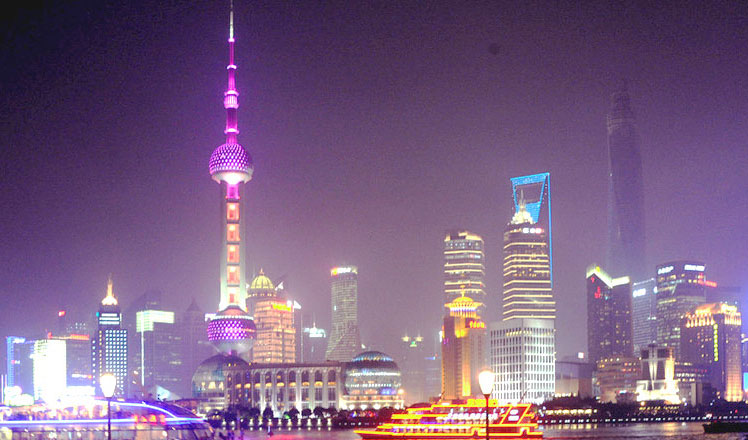
 Top 10 wealthiest countries in the world
Top 10 wealthiest countries in the world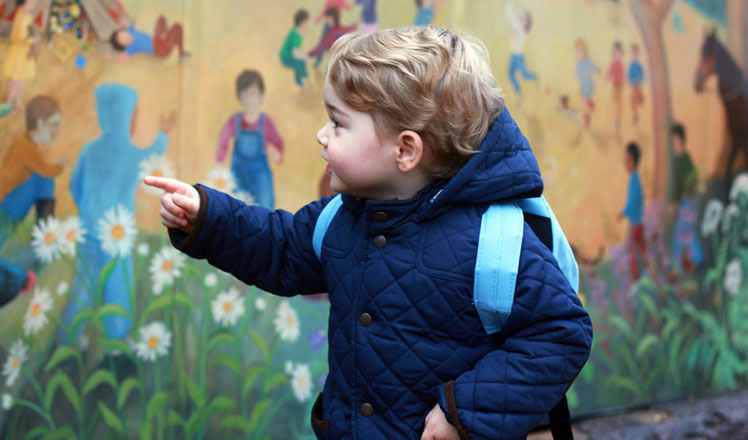
 Princlings go to school
Princlings go to school
 Chinese painters capture beauty of Hangzhou
Chinese painters capture beauty of Hangzhou
 1,150-meter-long 'floating bridge' created
1,150-meter-long 'floating bridge' created
 Take a sip of wine at the glass skywalk in Hunan
Take a sip of wine at the glass skywalk in Hunan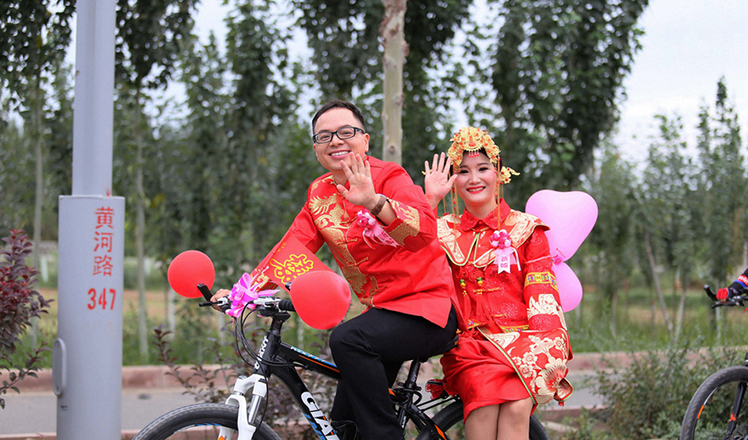
 Groom and bride cycle their way to wedding
Groom and bride cycle their way to wedding
 The world in photos: Aug 22- Aug 28
The world in photos: Aug 22- Aug 28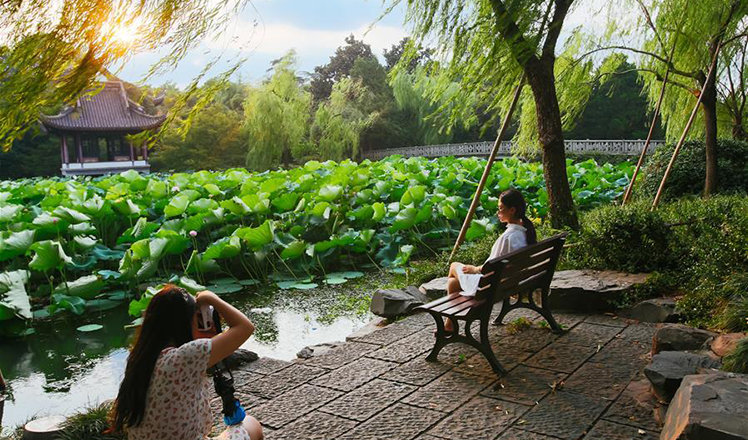
 Daily life in Hangzhou, host city of 11th G20 summit
Daily life in Hangzhou, host city of 11th G20 summit
Most Viewed
Editor's Picks

|

|

|

|

|

|
Today's Top News
Trump outlines anti-terror plan, proposing extreme vetting for immigrants
Phelps puts spotlight on cupping
US launches airstrikes against IS targets in Libya's Sirte
Ministry slams US-Korean THAAD deployment
Two police officers shot at protest in Dallas
Abe's blame game reveals his policies failing to get results
Ending wildlife trafficking must be policy priority in Asia
Effects of supply-side reform take time to be seen
US Weekly

|

|







